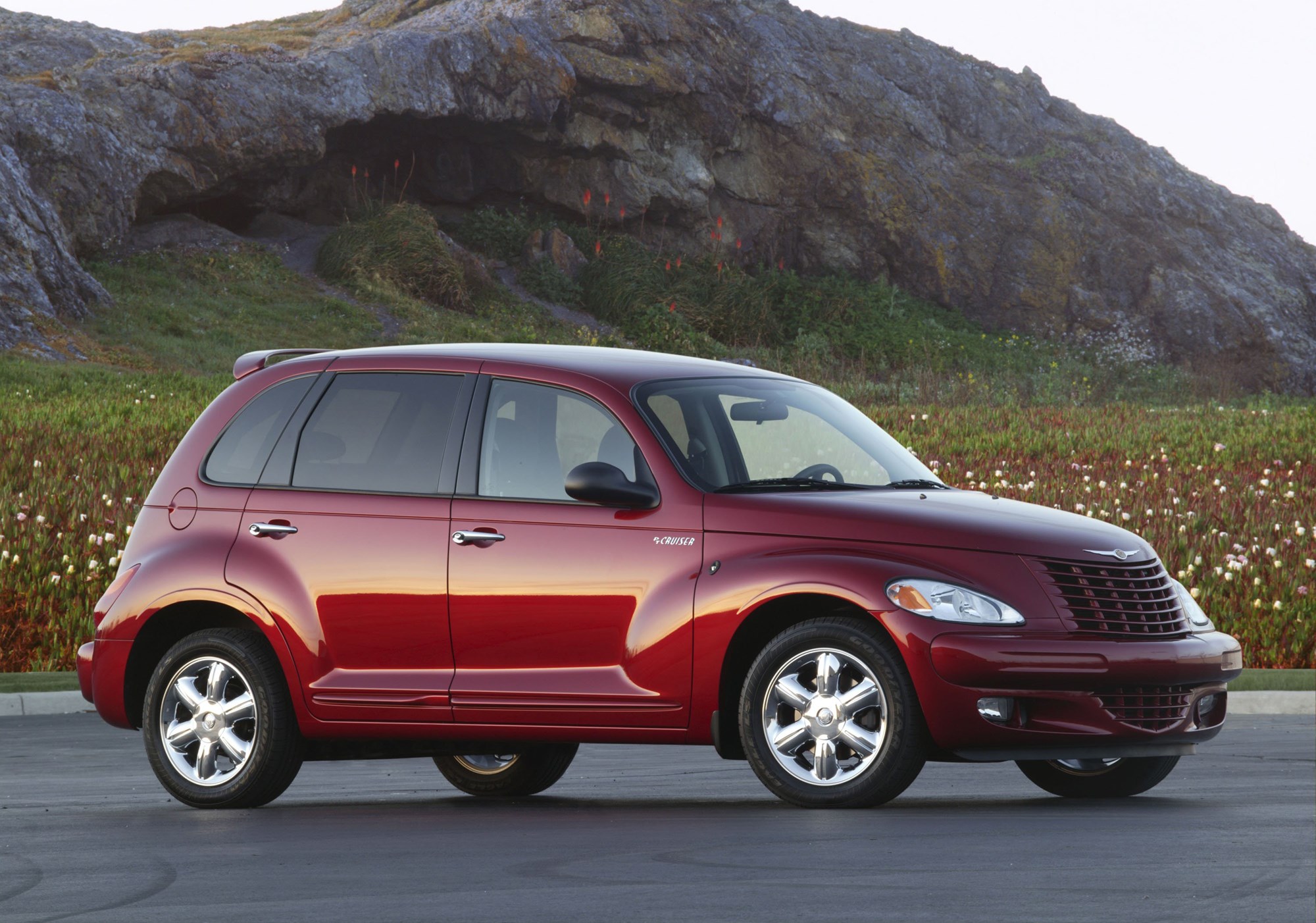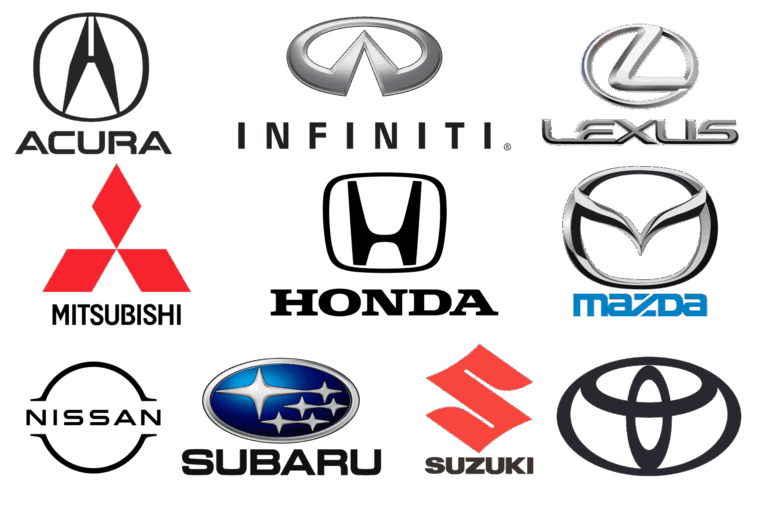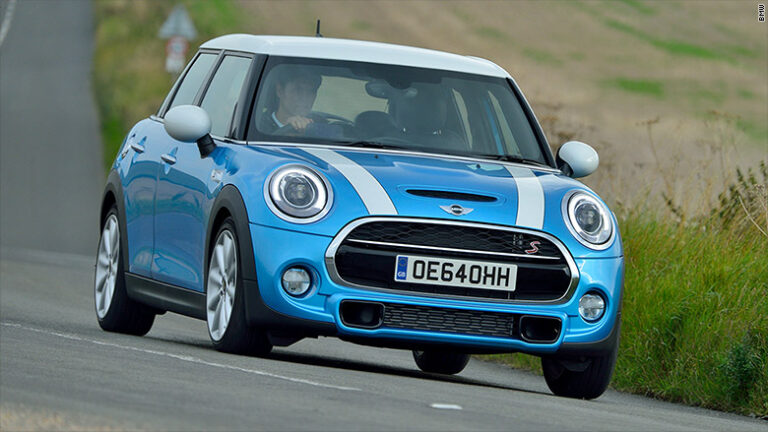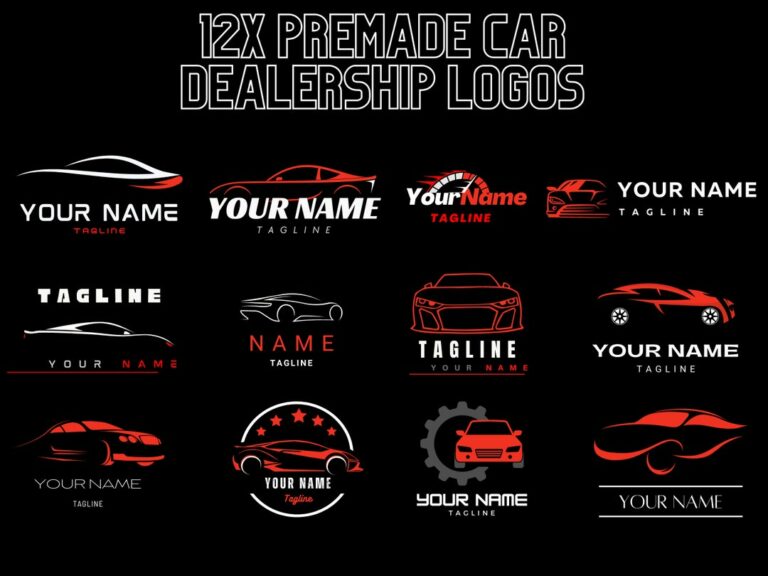Which Car Brands Depreciate The Least: A Comprehensive Guide to Smart Car Ownership
Which Car Brands Depreciate The Least: A Comprehensive Guide to Smart Car Ownership cars.truckstrend.com
Purchasing a car is often one of the most significant investments an individual makes, second only to a home. Yet, while most buyers meticulously research fuel efficiency, safety ratings, and infotainment systems, a crucial financial aspect often goes overlooked: depreciation. Car depreciation is the silent, ongoing loss of value a vehicle experiences over time. It’s the difference between what you pay for a car and what you can sell it for later. Understanding which car brands depreciate the least isn’t just an academic exercise; it’s a fundamental principle of smart car ownership that can save you thousands, even tens of thousands, of dollars over the lifespan of your vehicle.
This comprehensive guide will delve into the world of car depreciation, highlighting the brands and factors that help vehicles retain their value, offering practical advice, and equipping you with the knowledge to make a financially savvy choice for your next automotive purchase.
Which Car Brands Depreciate The Least: A Comprehensive Guide to Smart Car Ownership
Understanding Car Depreciation: The Hidden Cost of Ownership
At its core, depreciation is the reduction in the value of an asset over time. For cars, this loss of value is most pronounced in the first few years of ownership. A new car can lose 20-30% of its value in the first year alone, and roughly 50% or more within five years. This rapid decline is often the single largest "cost" of owning a vehicle, far surpassing fuel, insurance, or maintenance in many cases.
Several factors contribute to a car’s depreciation rate:
- Initial Price: More expensive cars often have a larger dollar amount of depreciation, even if their percentage loss is similar to cheaper cars.
- Mileage: The more miles on the odometer, the lower the resale value.
- Condition: Wear and tear, accidents, and lack of maintenance significantly reduce value.
- Market Demand: Popular models, especially those with a reputation for reliability, hold their value better.
- Brand Reputation: Certain brands are inherently perceived as more durable or desirable.
- Fuel Efficiency: Higher MPG is generally a plus for resale.
- Economic Conditions: Recessions or periods of high gas prices can influence demand for certain vehicle types.
- Color and Features: Neutral colors and desirable features often perform better.


Ignoring depreciation means you’re essentially losing money on an asset you own. By understanding which brands and models resist this decline most effectively, you can make a purchase that protects your investment and ensures a better return when it’s time to sell or trade in.
Top Car Brands Known for Low Depreciation
While no car is immune to depreciation, some brands consistently outperform others in retaining their value. These brands have cultivated reputations for reliability, durability, and strong market demand.
- Toyota: Consistently ranks at the top for low depreciation. Models like the Tacoma pickup, 4Runner SUV, and even the Highlander and RAV4 crossovers are legendary for holding their value. Their reputation for bulletproof reliability, low maintenance costs, and high demand in the used market are key drivers.
- Honda: Another Japanese powerhouse, Honda cars like the CR-V, Civic, and HR-V are known for their fuel efficiency, reliability, and strong resale value. Like Toyota, they benefit from a loyal customer base and a perception of quality.
- Subaru: With its standard all-wheel drive, strong safety ratings, and rugged appeal, Subaru models like the Outback, Forester, and Crosstrek are extremely popular, particularly in regions with harsh weather. This high demand translates directly into low depreciation.
- Porsche: While a luxury brand, Porsche defies the typical high-depreciation trend of its peers. Iconic models like the 911 often appreciate or hold their value exceptionally well due to limited production, brand prestige, and enthusiast demand. Even Cayenne and Macan SUVs hold their value better than many other luxury SUVs.
- Lexus: Toyota’s luxury arm, Lexus benefits from the same reliability and build quality as its parent company. Models like the RX SUV and ES sedan consistently show strong resale values, offering luxury without the typical steep depreciation of European luxury brands.
- Jeep (Wrangler/Gladiator): The Wrangler, in particular, is a phenomenon. Its unique off-road capability, timeless design, and cult-like following mean it holds its value remarkably well. The Gladiator pickup also follows this trend.
- Ford (F-Series Trucks): America’s best-selling vehicle for decades, the F-150 and other F-Series trucks have incredible demand, both new and used. Their utility, durability, and vast market contribute to their strong residual values.

These brands often share common traits that contribute to their low depreciation rates, which we’ll explore next.
Key Factors Contributing to Low Depreciation
Understanding the "why" behind low depreciation helps you identify these qualities in any car you consider, regardless of brand.
- Reliability & Durability: This is paramount. Cars that are known to last longer, require fewer unscheduled repairs, and incur lower maintenance costs are inherently more attractive to second-hand buyers. Brands like Toyota and Honda have built their empires on this reputation.
- Strong Resale Market & Demand: A vehicle’s value is ultimately determined by what someone else is willing to pay for it. Models that are consistently in high demand, either due to popularity, utility, or specific features (like AWD in Subarus), will naturally hold their value better.
- Fuel Efficiency: While not the sole factor, good fuel economy is always a desirable trait, especially during periods of high gas prices, making a vehicle more appealing in the used market.
- Low Maintenance Costs: Beyond reliability, the cost of routine maintenance and replacement parts plays a role. Brands with readily available and affordable parts often fare better.
- Brand Reputation & Loyalty: A brand’s image of quality, innovation, and customer satisfaction builds trust, which translates into higher resale values. Loyal owners are more likely to recommend or repurchase the brand.
- Segment & Body Style: Historically, trucks and SUVs have shown better depreciation rates than sedans. Their versatility, higher seating positions, and perceived utility often make them more desirable in the used market. Within luxury segments, certain sports cars or high-performance models with limited production can also hold value exceptionally well.
- Safety Ratings & Technology: Modern safety features and relevant technology (like smartphone integration) are increasingly important to buyers and can contribute to higher resale values.
Strategies for Minimizing Your Car’s Depreciation
While choosing a brand known for low depreciation is the first step, several actions you can take as an owner can further mitigate your vehicle’s value loss.
- Choose Wisely from the Outset: Beyond just brand, research specific models and even trim levels. Some configurations within a brand hold value better than others. Consult resources like Kelley Blue Book (KBB) or Edmunds for projected resale values.
- Maintain Meticulously: Follow the manufacturer’s recommended service schedule. Keep detailed records of all maintenance, repairs, and inspections. A well-documented service history is a goldmine for potential buyers.
- Drive Less: Lower mileage is directly correlated with higher resale value. If you have multiple vehicles, use the one that depreciates faster for shorter, less frequent trips.
- Keep it Clean and Pristine: Regularly wash, wax, and detail your car. Protect the interior from stains, tears, and excessive wear. A car that looks well-cared for sends a strong message about its overall condition.
- Avoid Excessive Modifications: While some tasteful, performance-oriented modifications might appeal to a niche market, most aftermarket additions (especially aesthetic ones) can actually decrease a car’s value to the average buyer. Stick to factory specifications where possible.
- Protect the Exterior: Paint protection film, ceramic coatings, and careful parking can prevent scratches, dings, and paint fading, preserving the exterior’s appeal.
- Consider Buying Certified Pre-Owned (CPO): Buying a CPO vehicle means someone else has absorbed the steepest initial depreciation hit. CPO cars come with manufacturer warranties and have undergone rigorous inspections, offering peace of mind and often a better value proposition.
Challenges and Considerations
While aiming for low depreciation is smart, it’s essential to be aware of potential challenges and nuances.
- Market Volatility: External factors like economic downturns, supply chain issues (which saw used car values soar in recent years), and shifts in consumer preferences can unpredictably impact depreciation rates.
- Technological Obsolescence: The rapid pace of technological advancement, particularly in infotainment, driver-assistance features, and especially electric vehicle (EV) technology, can make older models seem outdated faster, accelerating depreciation.
- Luxury vs. Mainstream Depreciation: While some luxury brands like Porsche and Lexus defy the trend, many other premium marques (e.g., Mercedes-Benz, BMW, Audi) typically depreciate much faster than mainstream brands. Their high initial cost, complex systems, and expensive parts/labor can deter second-hand buyers.
- Electric Vehicle (EV) Depreciation: The EV market is still relatively new and evolving. While demand is growing, concerns about battery degradation, charging infrastructure, and rapid technological advancements mean that EV depreciation trends are still being established and can be more volatile than traditional gasoline cars.
Practical Advice and Actionable Insights
- Utilize Online Tools: Before you buy, use online resources like Kelley Blue Book (KBB.com), Edmunds.com, and JD Power’s NADAguides.com. Many offer "5-Year Cost to Own" data, which factors in depreciation.
- Think Long-Term: Don’t just consider the purchase price. Calculate the estimated depreciation over your intended ownership period. A car that costs less upfront but depreciates rapidly might be more expensive in the long run than a slightly pricier car that holds its value.
- Consider Buying Slightly Used: Buying a car that is 1-3 years old allows someone else to take the biggest depreciation hit. You still get a relatively new car, often with remaining warranty, at a significantly reduced price.
- Factor in Demand for Features: While you might love a quirky color or unique feature, consider how it will appeal to the broader market when you sell. Neutral colors (white, black, silver, gray) and common trim levels often have broader appeal and better resale.
Table: Estimated 5-Year Depreciation Rates for Top Brands
It’s crucial to remember that depreciation rates are averages and can vary significantly based on specific model, trim, mileage, condition, and market fluctuations. The figures below are illustrative of general trends.
| Car Brand | Typical 5-Year Depreciation Rate (%) | Key Reasons for Low Depreciation |
|---|---|---|
| Toyota | 30-35% | Exceptional reliability, low maintenance, high demand, strong resale market for trucks/SUVs. |
| Honda | 32-37% | Reliability, fuel efficiency, strong demand, practical designs, loyal customer base. |
| Subaru | 35-40% | Standard AWD, strong safety ratings, rugged image, brand loyalty, demand in specific regions. |
| Porsche | 35-45% (varies greatly by model) | Brand prestige, limited production (for some models), strong enthusiast demand, timeless designs. |
| Lexus | 38-42% | Toyota’s reliability, luxurious comfort, strong customer service reputation, refined driving experience. |
| Jeep | 30-40% (Wrangler/Gladiator often lower) | Unique off-road capability, iconic design, cult following, high demand for specific models. |
| Ford | 38-45% (F-Series trucks often lower) | Dominance in truck market, utility, durability, high demand for work and personal use. |
Disclaimer: These percentages are general estimates based on historical data and market trends. Actual depreciation can vary widely based on model, trim level, mileage, condition, local market, and overall economic factors.
Frequently Asked Questions (FAQ)
Q1: Is buying a used car a good way to avoid depreciation?
A1: Yes, absolutely. New cars experience the steepest depreciation in their first 1-3 years. By buying a car that is a few years old, you let the first owner absorb that significant initial loss, getting a much better value for your money.
Q2: Do electric cars depreciate more or less than gasoline cars?
A2: Currently, many electric vehicles (EVs) tend to depreciate more rapidly than comparable gasoline cars, especially older models. This is due to evolving battery technology, range anxiety, charging infrastructure concerns, and government incentives that make new EVs more attractive. However, this trend is dynamic and may change as the EV market matures.
Q3: Does car color affect depreciation?
A3: Yes, to some extent. Neutral colors like white, black, silver, and gray generally hold their value better because they appeal to a wider range of buyers. Unique or very bright colors might appeal to a niche market but can limit resale potential, potentially leading to higher depreciation.
Q4: How much does a new car typically depreciate in the first year?
A4: On average, a new car can depreciate by 20-30% in its first year. After five years, it’s not uncommon for a car to have lost 50% or more of its original value.
Q5: Are luxury cars always bad for depreciation?
A5: Not always. While many luxury brands (e.g., Mercedes-Benz, BMW, Audi) do experience significant depreciation due to their high initial cost and expensive maintenance, a few exceptions exist. Brands like Porsche and Lexus often retain their value much better than their luxury competitors, thanks to strong demand, reliability, and brand prestige.
Conclusion
Understanding and accounting for car depreciation is a cornerstone of financially savvy vehicle ownership. While the allure of a brand-new car can be strong, making an informed decision about which brands and models depreciate the least can save you a substantial amount of money in the long run. Brands like Toyota, Honda, Subaru, and certain models from Porsche, Lexus, and Jeep consistently prove to be excellent investments due to their reliability, strong demand, and enduring appeal.
By combining careful brand and model selection with diligent maintenance and smart ownership practices, you can significantly mitigate the hidden cost of depreciation. Your next car purchase doesn’t just have to be about getting from point A to point B; it can also be a strategic financial decision that protects your assets and provides a better return on your investment when it’s time for an upgrade.






